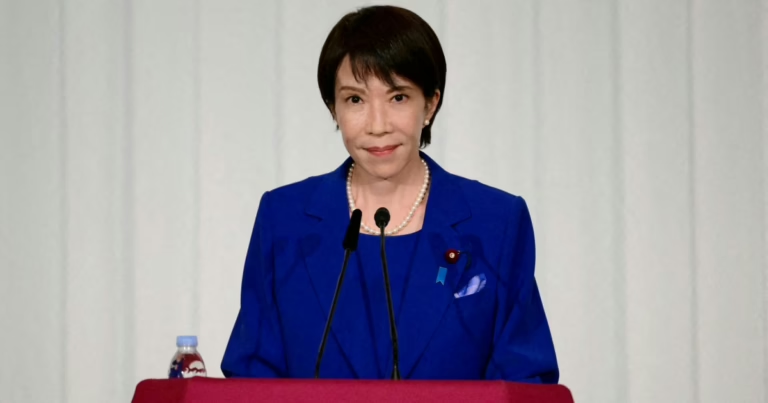The right-leaning Japan Innovation Party pledges support for the ruling LDP, paving the way for Sanae Takaichi’s election as party leader.
Published On 20 Oct 2025
Sanae Takaichi, a staunch conservative, is poised to make history as Japan’s first takaichi-as-leader-likely-to-become-first-female-pm-npr/” title=”Japan’s ruling party elects Sanae … as leader, likely to become first female PM : NPR”>female prime minister, following the ruling Liberal Democratic Party’s (LDP) move to finalize a coalition agreement.
On Monday, Hirofumi Yoshimura, co-head of the right-wing Japan Innovation Party (Ishin), announced his party’s readiness to back Takaichi’s leadership, securing the LDP’s hold on power.
Just before the extraordinary parliamentary session scheduled for Tuesday, where the next prime minister will be elected, the LDP seemed at risk of losing its majority.
Speaking in Osaka, Yoshimura revealed, “I conveyed to Takaichi that we should advance together.” He also confirmed plans to meet her at 6 p.m. local time (09:00 GMT) to formalize their alliance.
This coalition agreement effectively ensures Takaichi’s victory in the upcoming vote, where she will succeed the outgoing Shigeru Ishiba.
Unrest in the Political Arena
At 64, Takaichi, known for her hawkish stance on China and conservative ideology, assumed leadership of the LDP earlier this month.
Her historic bid to become Japan’s first female prime minister faced a setback when the centrist Komeito party severed its 26-year coalition with the LDP.
This rupture, occurring shortly after Takaichi’s election as party leader, triggered a political upheaval nationwide.
Komeito, a party with Buddhist roots, criticized the LDP for inadequate reforms in political funding transparency following a recent slush fund scandal. Additionally, Komeito expressed unease over Takaichi’s hardline views, particularly her previously strong rhetoric against China, despite her recent moderation.
The alliance between the LDP and Ishin would command 231 seats in the lower house, just shy of a majority by two seats, necessitating further support from smaller parties to pass legislation.
However, if the prime ministerial vote proceeds to a runoff, Takaichi would only need to secure more votes than her opponent to win.
Reserved Reactions Among Women
Although Takaichi’s potential premiership marks a breakthrough for women in Japanese politics, many women have responded with caution rather than celebration.
Sociologist Chizuko Ueno expressed skepticism on social media, stating, “The arrival of a female prime minister does not guarantee a more women-friendly political environment.”
Political analyst Chiyako Sato of the Mainichi newspaper described Takaichi’s policies as “strongly hawkish,” doubting that her leadership would embrace diversity or progressive gender policies.






















